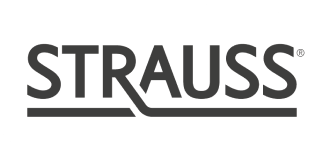FAQ
Have Questions? We’ve Got Answers.
Want to know more? Start here with our most commonly asked questions. Not finding the answer you are looking for? Feel free to reach out via our Contact Us page.
Grass-fed and grass-finished is the same as saying 100% grass-fed (i.e., the cattle only eat grass and forage during their entire lifetime). While all cattle eat grass during their lifetime, not all cattle are grass-finished; many cattle are finished on grain. Our grass-fed cattle follow the USDA’s standard for grass-fed which you can read here:
Grass and forage shall be the feed source consumed for the lifetime of the ruminant animal, with the exception of milk consumed prior to weaning. The diet shall be derived solely from forage consisting of grass (annual and perennial), forbs (e.g., legumes, Brassica), browse, or cereal grain crops in the vegetative (pre-grain) state. Animals cannot be fed grain or grain byproducts and must have continuous access to pasture during the growing season. Hay, haylage, baleage, silage, crop residue without grain, and other roughage sources may also be included as acceptable feed sources.
We only partner with family farmers and ranchers who are passionate about the grass they grow, the land they preserve, and the cattle they raise. They are exceptionally skilled at their craft, using all-natural, biological, soil-balancing methods. Our family farmers carefully tend to their cattle and their land, producing authentic heritage-bred, free range, 100% grass finished beef – never administered antibiotics or hormones, as nature intended. This produces sustainably raised, great-tasting, marbled beef. Good for the cattle, the earth, and you.
Our family farmers and ranchers are required to support sustainable practices while raising cattle, to ensure that not only the livestock but also the land itself thrives. This looks like utilizing regenerative agriculture practices such as pasture maintenance, limited use of herbicides/pesticides, and support of pollinator crops. These practices result in healthier soil which produces healthier pastures, resulting in healthier cattle. It’s a win-win-win.
Strauss values compassionate care towards our cattle, raising them in a healthy and low-stress environment suited to their needs. Our family farmers and ranchers are required to adhere to guidelines that provide care and limit stress to the animal, so that they experience ethical and humane treatment for the entirety of their lives. This positive treatment results in cattle living their best lives, happy and healthy, the way they are meant to be.
All harvesting of cattle must take place according to the American Meat Institute (AMI) Guidelines as developed by Dr. Temple Grandin. This is to ensure that the cattle are not caused any unnecessary distress or discomfort, and to ensure the humane harvest of the livestock. This conforms to Strauss’s commitment to the humane handling of all cattle for the entirety of their life.
No, Strauss Grass-Fed Beef cattle never receive antibiotics, for any reason. If an animal requires the use of antibiotics to be returned to full health, they will be administered as needed, and that animal will be removed from our beef program. This ensures the best health and care for our animals, as well as the assurance that Strauss Grass-Fed Beef will always be free from antibiotics.
At Strauss, our priority is to provide clear and accurate information about our farming practices and the health and well-being of our cattle. We do not use mRNA vaccines or any other gene therapy treatments in our cattle. Our commitment is to natural and traditional farming practices, ensuring the highest quality, natural beef for our customers. We appreciate your concern and are happy to address any further questions or clarifications you may need.
